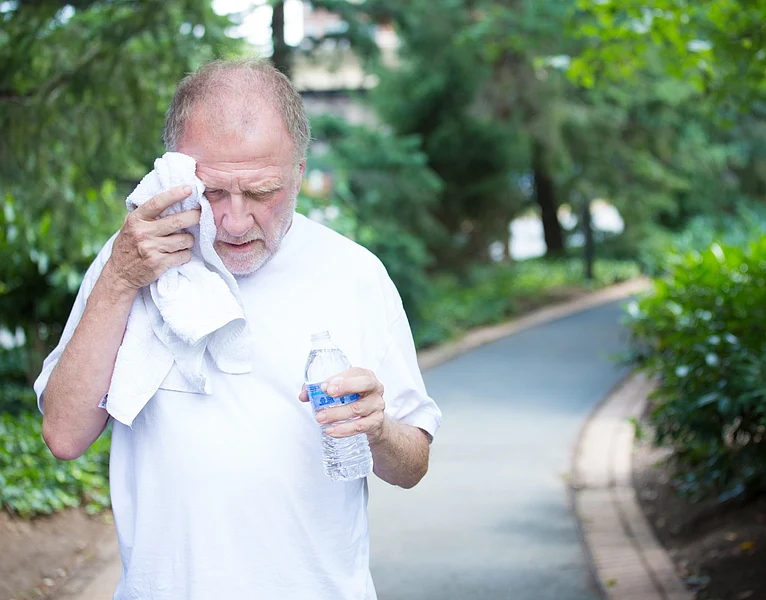(330) 876-1228
8507 Main StreetKinsman, OH 44428
(330) 876-1229

The record-breaking heat that's scorching much of the United States this week poses significant heart dangers, and you need to take steps to protect yourself, the American Heart Association (AHA) says.
That's especially true for older adults and people with high blood pressure, obesity or a history of heart disease or stroke.
Heat and dehydration force the heart to work harder to cool itself by pumping more blood and shifting it from major organs to underneath the skin.
Research shows that when temperatures reach extremes of an average daily temperature of 109 degrees Fahrenheit (as it has this week in the Southwest), the number of deaths from heart disease may double or triple, and that the more temperatures fluctuate during the summer, the more severe strokes may become.
"While heat-related deaths and illnesses are preventable, more than 600 people in the United States are killed by extreme heat every year, according to the U.S. Centers for Disease Control and Prevention. If you have heart disease or have had a stroke or you're older than 50 or overweight, it's extremely important to take special precautions in the heat to protect your health," said AHA President Dr. Donald Lloyd-Jones.
"Some medications like angiotensin receptor blockers [ARBs], angiotensin-converting enzyme [ACE] inhibitors, beta blockers, calcium channel blockers and diuretics, which affect blood pressure responses or deplete the body of sodium, can exaggerate the body's response to heat and cause you to feel ill in extreme heat," said Lloyd-Jones, a professor of heart research, preventive medicine, medicine and pediatrics at Northwestern University in Chicago.
"But don't stop taking your medicines. Learn how to keep cool and talk to your doctor about any concerns," he said in an AHA news release.
Even if you're not taking heart medications, you should take precautions in the heat.
"Staying hydrated is key. It is easy to get dehydrated even if you don't think you're thirsty," Lloyd-Jones said. "Drink water before, during and after going outside in hot weather. Don't wait until you feel thirsty. And the best way to know if you are getting enough fluid is to monitor your urine output and make sure the urine color is pale, not dark or concentrated."
The AHA provided the following hot weather safety tips:
More information
For more on heat wave safety, see the American Red Cross.
SOURCE: American Heart Association, news release, June 14, 2022
